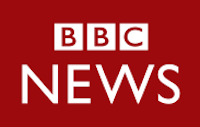The business of journalism looks a lot like a game of Risk right now, as media companies are angling for position with new sites and bureaus around the globe. Quartz and The Huffington Post have both recently set up shop in India. BuzzFeed plans to use its new funding to expand its overseas reporting footprint, and this week Politico announced it was partnering with Axel Springer to launch a Europe-focused politics site.
 With so much globetrotting it only makes sense that foreign news outlets would turn their eyes to the United States. The BBC set off on one adventure this week with BBC Pop Up, a mobile (in the on-the-move sense, not the iPhone 6 sense) reporting project where journalists will report from a series of U.S. cities over the next six months. Like any good pop up restaurant, the BBC’s plans are simultaneously ambitious but also limited: the BBC team will file stories for online, shoot video for broadcast, and work with locals to uncover unreported stories. It’ll do all of that in one month before moving on to the next town. The first stop is Boulder, Colo. The Ringling Brothers would be proud.
With so much globetrotting it only makes sense that foreign news outlets would turn their eyes to the United States. The BBC set off on one adventure this week with BBC Pop Up, a mobile (in the on-the-move sense, not the iPhone 6 sense) reporting project where journalists will report from a series of U.S. cities over the next six months. Like any good pop up restaurant, the BBC’s plans are simultaneously ambitious but also limited: the BBC team will file stories for online, shoot video for broadcast, and work with locals to uncover unreported stories. It’ll do all of that in one month before moving on to the next town. The first stop is Boulder, Colo. The Ringling Brothers would be proud.
For an organization as large as the BBC the pop up bureaus are a relatively low risk/high reward proposition. It gets the BBC wider exposure in the United States as something other than the place that broadcasts Gordon Ramsey and Doctor Who, but also serves as a test for whether there is a broader appetite for their reporting in the states.
As far as experiments go, it’s still curious why a news organization that already has large bureaus throughout the United States, not to mention various language services around the world, would put on a roadshow. As Matt Danzico, head of the BBC innovation lab explains, the pop up project is about building a bridge to a new type of audience:
In the 21st Century, creating video for television from cities like Washington, New York and/or Los Angeles is definitely an effective way of reaching traditional media consumers in those markets. But if you’re also trying to reach younger generations in Colorado, for instance, why not create gripping video from the state that’s of interest to a global audience?
And now you’ve not only provided interesting programming to your traditional audience but you have also sparked the interest of an entirely new community as well.
Do that for one month at a time. Post your videos to local social media. Move cities. Repeat.
Yes, BBC News has 44 foreign bureaus in a heap of cities around the world. But the world has nearly 3,000 cities with a population over 150k. So why not create a mobile bureau that can embed itself in a community and then relocate easily?
Here’s a look at what they have in store: